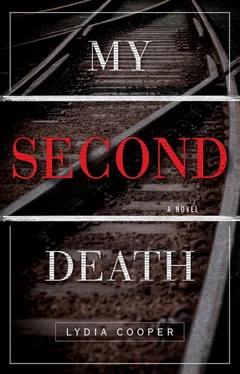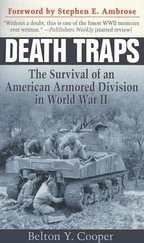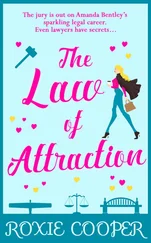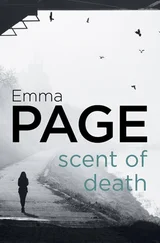“I wish—”
She blinks and looks at me.
I swallow. “Never mind. Thanks for the pasta.” I put the bowl down on the counter.
She watches me as I leave. Streaks of mascara drip down her cheeks, a sad clown’s eyelashes.
I intend to write some of my dissertation but when I get home all I can think about is the knife in my mother’s hand. Tears. Human grief. I think about Judith Greene with her fat cheeks and tragic eyes. And I think about that blue tarp under the bridge.
It occurs to me that ordinary people kill other people all the time. But they don’t murder solely from rage or from a delight in the act of killing itself. The depths of sadness, which I have never felt, are deep enough to kill, to drive people to unthinkable acts because they can no longer think. They only exist in a world of feeling and that feeling is misery.
I don’t sleep much, drifting in a watery dreamscape where I am tangled in algae and reeds and when I drag my hand free of the water I see that my fingers are tangled in my younger brother’s hair and I realize that I have been trying to rescue him but forgot my purpose and now he’s drowned. The edges of my dreams leave me exhausted but hyper. My skin feels shrunken, like it hugs too tightly to my bones.
At five-thirty in the morning I get up and go into the kitchen. As quietly as I can, I slice cheese and pull out a packet of bologna. I butter two pieces of bread and stack together a sandwich, slice it lengthwise, and zip it into a baggie. I collect some carrot sticks as well. The homeless shelter and soup kitchen won’t be open this early, which means anyone who slept rough on the raised concrete buttresses under the bridges will still be there.
A hoary sun cracks the slate clouds in the east and rain flares white against it. Past the southernmost dormitory and the art building, a steep hill drops down to the tracks. I jog across the parking lot of the academic building, stop in the weeds overgrowing the verge, and look down toward the overpass. The slope ends in broken shale and the metal stitching of train tracks.
Emerald green glass bottle shards glint through the brown crust of rust, old leaves, cigarette butts, and soiled trash bags. My sneakers creak on the cold gravel. I near the overpass and see that my guess was right. There is a veritable homeless domestic scene awaiting me. Broken bricks pin the edges of the blue tarp, and two hefty trash bags of clothes lie between the bricks, along with a man in a few overcoats and a yellowish beard.
I keep hiking down the tracks. He stirs when I pass but doesn’t lift his head. His coat sleeve is empty.
I walk for a long time. I pass two people who are sitting together talking. They look up at me and raise a hand, nod their heads. I am uncertain what the protocol for greeting is, but I nod, awkwardly, and keep walking.
On one sloping concrete embankment I see a collection of trash bags, a shopping cart filled with blue plastic Walmart bags tied tight around their contents, and the object that caught my eye in the first place: a stained pink backpack, still shiny in the glittering golden dawn.
The occupant of this outdoor domicile is at home. A woman sits on the concrete by the cart, one hand on a cigarette, eyes fixed on the middle distance. She blink and turns her head toward me as I pick my way down the tracks.
She doesn’t seem to recognize me, but I recognize her. Or at least, I recognize the pink bulb of her tongue as it pushes through the gap in her front teeth, pulsing in and out like a nervous snake.
“Hey,” I say.
She mutters to herself and rocks. After a while she looks back at me. Her cheek twitches so hard her head jerks to the side slightly.
“It’s okay,” I say. “I’m not going to do anything to you. Look. I brought you a sandwich.”
Her eyes wander away from my face and I realize that she is totally disconnected, that even the sandwich isn’t reaching the lucid bit of her subconscious.
I reach out to touch her.
“No, no.” Her fingers pluck at the air. “Don’t be sweet. Don’t be no. It eats the sweet.”
“Sh. Hush. It’s okay.”
She warbles meaningless syllables to me. Spit drains from her mouth.
I say, “I won’t hurt you. I don’t lie, you can believe me.” I don’t even know what I’m doing, only that she saw the corpse, she is tied irrevocably to that world. But she pulled a sheet over him. I only want her to know — I’m not sure what. That I saw it, that I know who she is under the fracturing mind and social stigmatization.
But her eyes look everywhere except at me. So I reach out and I force my hands to touch hers, her skin the texture of old mushrooms, spongy and damp.
The heat starts in my palms. Pricks along my fingers, down my wrists, running like molten iron up the insides of my arms, burning in the hollows of my elbows. The sickness in my stomach makes my heartbeat kick faster.
She screams. Saliva slides down her chin. Her chipped and yellowed nails claw at my arm. Thin pink welts race over my skin like tunneling worms.
And then the fabric of her skin melts. Relaxes. Her eyelids close. I jump back as her body rocks forward, the joints folding, the limps collapsing. Startled, I think for a minute that I have killed her somehow. Then I realize she must be fainting or having an epileptic seizure. I grab her just before she hits the gravel. Her body is heavy and smells sour. The dampness of her armpits, her stale breath. I lay her against the cloth-sided suitcase. I check her pulse, which is butterfly faint but steady. She has fainted, not seized.
I look down at her. A shadow hangs over her lax skin and I can almost imagine the lips filled out with teeth, the wrinkles erased by reversed time. I imagine her resurrection, the eyelids lifting on clear and smiling eyes. She will get up and gather herself and her steady feet will take her to a warm lit place where some child catches sight of her, and reaching out desperate hands cries in a voice full of birthdays and bright Saturday mornings, “Mommy! Mommy!”
I stand over her in the cold morning and imagine a world in which she’s some kid’s home, and I am some mother’s pride and joy. I see two people in her, but only one will wake up. It makes me angry, for some reason.
But I don’t have time wait here for her to wake up. No time to witness her resurrection to a life more or less precisely the same as the one she’s lived thus far. I look at my watch. I need to get to campus.
Coming here makes no sense. Bringing her a sandwich makes even less sense. I knew she wouldn’t be lucid. A schizophrenic whose condition is severe enough that she was on the amount of medication necessary to leave behind those physical glitches, and who is no longer on any medication, would not by any means make a worthwhile witness.
I pull the wrapped sandwich and baggie of carrots out of my pack and set them next to her. The only thing I know about her is that, as tattered as her mind is, she still pulled a sheet over a dead body to cover his nakedness. I did not bring her a sandwich out of kindness. If anything, I think I brought it to her for the same reason that she pulled a sheet over the corpse. We are like the ancients who burnt grain at altars to gods who never answered, as if the blind obstinacy of ritual itself can inscribe some grace on the practitioner.
She is still unconscious when I climb the slope to the street above.
It is now after eight in the morning. A few cars pass by, and pedestrians with briefcases beep remote locks on their cars and enter banks and office complexes and fade into their quotidian lives. The torrid sky arches overhead and the ordinary masses pass me by like I’m invisible.
I change into a clean pair of jeans and a sweater, and I head back to campus to teach my classes. After teaching, I go up to the department offices, ignore another note from the dean, slot my finished chapter into Telushkin’s mailbox, and venture into the grad student office to print out directions to an address I’ve scrawled on the yellow legal pad. The address is in Hudson, a preppy mostly Caucasian suburb almost half an hour north of Akron.
Читать дальше












